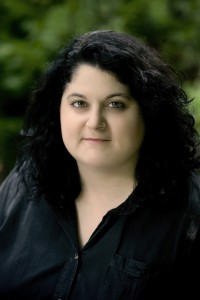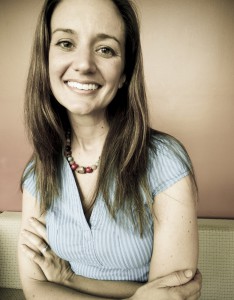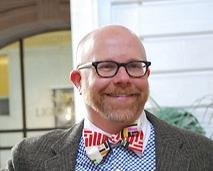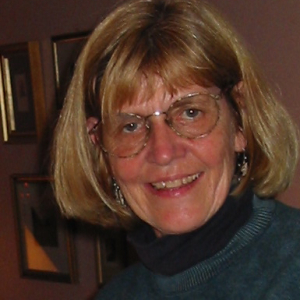Profiling Great Sexuality Educators includes interviews that originally appeared on the website of The Center for Sexual Pleasure and Health and is adapted and reprinted with permission.
Interview with Dr. Elizabeth Schroeder
1. What do you do in the field of sexuality?
I’m the executive director of Answer, a national sexuality education organization that provides and promotes comprehensive sexuality education to young people and the adults who teach them.
I’m the executive director of Answer, a national sexuality education organization that provides and promotes comprehensive sexuality education to young people and the adults who teach them.
2. Where are you based out of?
We work nationally, but we are based at Rutgers University in New Jersey.
We work nationally, but we are based at Rutgers University in New Jersey.
3. What is your focus? What do you do?
We have two main programs: our award-winning teen-to-teen sexuality education program, Sex, Etc., which features a magazine written by our teen editorial staff for teens. We also have a Web site, Sexetc.org, also by teens, for teens, written by both our teen editorial staff and teen contributors from around the country. We also find that educators and parents use Sex, Etc. as a reference for understanding what young people want and need to know about sexuality, although we also have an organizational Web site with resources for adults, answer.rutgers.edu.
We have two main programs: our award-winning teen-to-teen sexuality education program, Sex, Etc., which features a magazine written by our teen editorial staff for teens. We also have a Web site, Sexetc.org, also by teens, for teens, written by both our teen editorial staff and teen contributors from around the country. We also find that educators and parents use Sex, Etc. as a reference for understanding what young people want and need to know about sexuality, although we also have an organizational Web site with resources for adults, answer.rutgers.edu.
Our second program is our national sexuality education training initiative, which provides both in-person trainings and online professional development (OPD) for school teachers, educators and parents. We are just now launching our third OPD workshop, “LGBTQ Issues in Schools,” which follows “Sexuality ABCs (Abstinence, Birth Control and Condoms)” and “STD Basics.”
We also provide technical assistance to colleague organizations, state departments of education and health, and individual school districts and schools on how to provide age-appropriate, medically accurate sexuality education to young people.
4. What are your particular goals and passions in the field?
I love pedagogy – understanding how people learn, how we teach them most effectively. Given that sexuality is such a vital topic to people’s overall health, well-being and happiness, the pedagogy specific to teaching sexuality education is particularly important and nuanced. As technology has become more and more important to young people – and in the world at large – I love discovering and learning, and then determining the most effective ways for us to share that learning, as an organization, with our constituencies.
I love pedagogy – understanding how people learn, how we teach them most effectively. Given that sexuality is such a vital topic to people’s overall health, well-being and happiness, the pedagogy specific to teaching sexuality education is particularly important and nuanced. As technology has become more and more important to young people – and in the world at large – I love discovering and learning, and then determining the most effective ways for us to share that learning, as an organization, with our constituencies.
5. Why did you choose to work in this field?
Oh, it wasn’t a choice – it literally hit me like a freight train! I started my career working in the arts as a fundraiser, and while I adore and value the arts, I knew I wanted to do something more social service focused. I became determined to find a job with Planned Parenthood, and joined the national office as a development officer. I had a meeting one day with the education department, and knew by the end of the meeting that I had to do what they did. I went to the person who was the VP of that department a few days later and begged for a job, and she made it happen. It was a pay cut and I was basically starting over from the beginning – but I didn’t regret it for a minute, and still don’t.
Oh, it wasn’t a choice – it literally hit me like a freight train! I started my career working in the arts as a fundraiser, and while I adore and value the arts, I knew I wanted to do something more social service focused. I became determined to find a job with Planned Parenthood, and joined the national office as a development officer. I had a meeting one day with the education department, and knew by the end of the meeting that I had to do what they did. I went to the person who was the VP of that department a few days later and begged for a job, and she made it happen. It was a pay cut and I was basically starting over from the beginning – but I didn’t regret it for a minute, and still don’t.
After that I worked at Planned Parenthood of New York City, and then went off on my own as a consultant, which was an amazing experience that introduced me to international work, which I still continue to do on my personal time. Having been an adjunct professor, I chose to pursue my doctorate, and then had a brief stint in academia before the job at Answer became available. I’ve been here now almost 3 ½ years, and it’s a phenomenal place to work with an outstanding mission and staff.
6. Where did you go for school/training?
I earned an MSW from NYU – great program; it was clinical, and although I knew I never wanted to be a therapist, the training I got there on understanding both individuals and groups has been invaluable to me as an educator and now as an executive director. I earned an EdD from Widener University’s human sexuality education program.
I earned an MSW from NYU – great program; it was clinical, and although I knew I never wanted to be a therapist, the training I got there on understanding both individuals and groups has been invaluable to me as an educator and now as an executive director. I earned an EdD from Widener University’s human sexuality education program.
7. Do you have any literature out (websites, articles)?
Answer has a professional Web site that’s answer.rutgers.edu. I love to write, and I love to co-write with folks, so I’m fortunate to have a good number of publications out there, one of which I’m going to recommend as a “must read” below if that isn’t too shameless! But they include two curricula: Making SMART Choices: A Curriculum for Young People; Being Out, Staying Safe: An STD Prevention Curriculum for LGBQ Youth (I co-wrote those last two with Eva Goldfarb), a chapter in Health Counseling: Applications and Theory, a chapter in The Continuum Complete International Encyclopedia of Sexuality, a lesson in New Expectations: Sexuality Education for Mid- and Later Life;
Answer has a professional Web site that’s answer.rutgers.edu. I love to write, and I love to co-write with folks, so I’m fortunate to have a good number of publications out there, one of which I’m going to recommend as a “must read” below if that isn’t too shameless! But they include two curricula: Making SMART Choices: A Curriculum for Young People; Being Out, Staying Safe: An STD Prevention Curriculum for LGBQ Youth (I co-wrote those last two with Eva Goldfarb), a chapter in Health Counseling: Applications and Theory, a chapter in The Continuum Complete International Encyclopedia of Sexuality, a lesson in New Expectations: Sexuality Education for Mid- and Later Life;
And three editions of Taking Sides: Clashing Views in Controversial Issues in Family and Personal Relationships. Those last three came to me thanks to Bill Taverner.
8. What would you recommend to future sexologists attempting to get into the field?
So, here’s the thing – I don’t identify myself as a sexologist, so I think the first thing I’d say to folks is that that’s okay – that the sexuality field is comprised of a wide range of jobs and potential to make an impact on a community or whatever part of the world you choose. It seems like—and I’ve heard this directly from a few of them—some of the newer folks in the field feel pressure to be the most cutting edge, fierce, button-pushing sexologists they can be. And if that’s what motivates you, have at it. But as someone who works in the land of school-based sexuality education, in communities where teachers have lost their jobs because they taught even the most basic sexuality information, I see first-hand that there is a ton of foundational work that needs to be done. There are many ways to define yourself, and you should feel like there is room for you in this field even if you choose not to be a “sexologist” but are, say, a health teacher who is responsible for teaching sex ed. You’re an important part of the field, and you are most welcome.
So, here’s the thing – I don’t identify myself as a sexologist, so I think the first thing I’d say to folks is that that’s okay – that the sexuality field is comprised of a wide range of jobs and potential to make an impact on a community or whatever part of the world you choose. It seems like—and I’ve heard this directly from a few of them—some of the newer folks in the field feel pressure to be the most cutting edge, fierce, button-pushing sexologists they can be. And if that’s what motivates you, have at it. But as someone who works in the land of school-based sexuality education, in communities where teachers have lost their jobs because they taught even the most basic sexuality information, I see first-hand that there is a ton of foundational work that needs to be done. There are many ways to define yourself, and you should feel like there is room for you in this field even if you choose not to be a “sexologist” but are, say, a health teacher who is responsible for teaching sex ed. You’re an important part of the field, and you are most welcome.
9. What is the most challenging aspect for you working in this career?
There are a number of them. But the greatest one, I think, as someone who works with and for youth, is the pervasive fear that far too many adults have of teaching about sexuality to young people, and the accompanying manipulation they do to each other to feed that fear and build paranoia so that the opposition to our work remains – even though there’s so much research demonstrating the effectiveness of the work we do. I can’t believe that, 20 years later, we’re still fighting to eliminate abstinence-only-until-marriage funding for programs that have no impact on young people. Even with the progress we’ve made, we still have a long way to go when it comes to shifting public awareness and understanding, and that feels a bit daunting at times.
There are a number of them. But the greatest one, I think, as someone who works with and for youth, is the pervasive fear that far too many adults have of teaching about sexuality to young people, and the accompanying manipulation they do to each other to feed that fear and build paranoia so that the opposition to our work remains – even though there’s so much research demonstrating the effectiveness of the work we do. I can’t believe that, 20 years later, we’re still fighting to eliminate abstinence-only-until-marriage funding for programs that have no impact on young people. Even with the progress we’ve made, we still have a long way to go when it comes to shifting public awareness and understanding, and that feels a bit daunting at times.
10. One must read-what would you recommend? Why?
A few years ago, I co-edited a four-volume book series with Dr. Judy Kuriansky titled, “Sexuality Education: Past, Present and Future.” I recommend it because it’s really the most comprehensive work we have out there on sexuality education so far, and because the chapters are written by some of the sharpest colleagues in the field right now.
A few years ago, I co-edited a four-volume book series with Dr. Judy Kuriansky titled, “Sexuality Education: Past, Present and Future.” I recommend it because it’s really the most comprehensive work we have out there on sexuality education so far, and because the chapters are written by some of the sharpest colleagues in the field right now.
Another great book was Sex in History by Reay Tannahill; one of the best books I’ve ever read relating to our work.
You can finder more information about ANSWER at www.answer.rutgers.edu, or follow on Twitter at @sexedhonestly.
You can follow Dr. Schroeder on Twitter at @drschroe. You can also follow Sex Etc at @sexetc.
__________________________________________________________________
Profiling Great Sexuality Educators includes interviews that originally appeared on the website of The Center for Sexual Pleasure and Health and is adapted and reprinted with permission.





